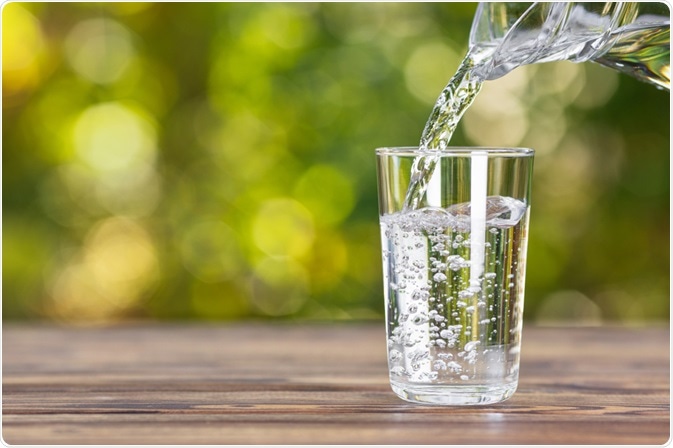Water: The Elixir of Life
Water, the tasteless, colorless, and odorless liquid, is a crucial element for life on Earth. It covers about 71% of the planet's surface, and it's a vital component for all living organisms. Despite its abundance, access to clean and safe water is still a problem for many people around the world. In this article, we will delve into the wonders of water and explore its various forms, importance, and challenges.
The Different Forms of Water
Water is a versatile substance and can exist in various forms, each with its unique characteristics. These forms are solid, liquid, and gas. In its solid form, water is known as ice, and it has a crystalline structure that makes it strong and durable. Ice is widely used in the food industry to preserve food products and in the construction industry to build roads and bridges.
In its liquid form, water is the most common and vital form of water. It has a high surface tension, which enables it to flow and fills containers without spilling. This property makes it an ideal medium for carrying nutrients and waste products in the human body and other living organisms.
In its gaseous form, water is known as steam, and it's produced by boiling water. Steam is used in many industries, such as power generation, food processing, and medicine, to name a few. The high temperature of steam makes it an excellent source of energy, and it's used to drive turbines that generate electricity.
The Importance of Water
Water is essential for life as we know it, and it's involved in various critical biological processes. The human body, for instance, is made up of about 60% water, and it's essential for the proper functioning of all our organs. Water acts as a lubricant for joints, regulates body temperature, and carries nutrients to cells. Additionally, water is necessary for the digestion of food and the elimination of waste products from the body.
Water also plays a crucial role in agriculture, where it's used to grow crops and maintain livestock. Irrigation systems are used to transport water from rivers, lakes, or wells to fields, and it's essential for the growth of crops. In areas where water is scarce, innovative solutions like drip irrigation and rainwater harvesting are used to conserve water and make it available for agricultural purposes.
Water is also critical for industrial processes, such as power generation, food processing, and manufacturing, to name a few. It's used as a cooling agent in power plants and as a cleaning agent in many industries. Water is also used to extract minerals from the earth, and it's an essential component in the production of various products, such as chemicals, textiles, and paper.
The Challenges of Water
Despite its abundance, access to clean and safe water is still a challenge in many parts of the world. The United Nations estimates that about 2 billion people lack access to safe drinking water, and this has a significant impact on health, agriculture, and the economy.
Water pollution is another major challenge, and it's caused by the release of chemicals, sewage, and other harmful substances into water bodies. This can have a significant impact on aquatic life, and it also makes water unsafe for human consumption. Industrial activities, agriculture, and sewage disposal are among the major sources of water pollution.
Water scarcity is another challenge that affects many regions of the world. Drought, over-extraction of groundwater, and climate change are among the major factors that contribute to water scarcity. In areas where water is scarce, people have to travel long distances to access it, and this affects their health, education, and livelihoods.
The Way Forward
To address these challenges, it's crucial to adopt sustainable practices that conserve and protect water resources. Governments, communities, and individuals can play a significant role in promoting water sustainability. Here are a few steps that can be taken:
- Water conservation: Reducing water wastage by fixing leaks, using efficient plumbing fixtures, and practicing water-saving techniques like showering instead of bathing can help conserve water.
- Pollution control: Strict regulations and enforcement of laws can help control water pollution. Industries can adopt best practices, such as using closed-loop systems, to reduce the release of harmful substances into water bodies.
- Sustainable agriculture: Adopting sustainable agricultural practices, such as rainwater harvesting, drip irrigation, and crop rotation, can help conserve water and reduce the impact of agriculture on water resources.
- Education and awareness: Raising awareness about the importance of water and the challenges it faces is crucial. Governments and organizations can launch campaigns to educate communities about water conservation and the importance of protecting water resources.
water is an essential element for life, and it plays a crucial role in various aspects of our lives, from agriculture to industry to human health. Despite its abundance, access to clean and safe water is still a challenge, and it's essential to adopt sustainable practices that conserve and protect water resources. With the right actions, we can ensure that future generations have access to this precious resource.
Labels: Interesting, life, water, Water: The Elixir of Life, world


0 Comments:
Post a Comment
Subscribe to Post Comments [Atom]
<< Home